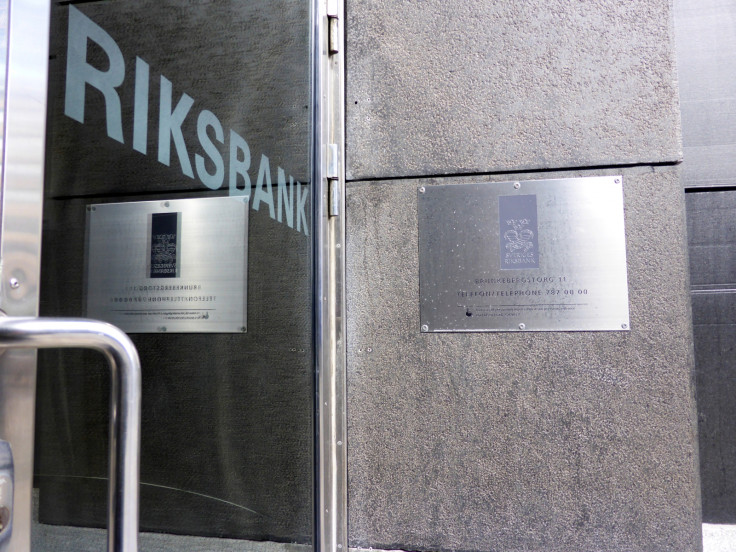Sweden's central bank turns to national digital currency as society ditches cash
Cecilia Skingsley, deputy governor of Riksbank says: 'We cannot wait any longer.'

To combat an increasingly cashless society, Sweden's central bank, Sveriges Riksbank, has said it plans to investigate the viability of issuing a digital currency. With the amount of notes and coins in circulation in the country reportedly falling by 40% since 2009, officials say urgent action is needed.
Cecilia Skingsley, deputy governor of Riksbank – the world's oldest central banking institution – said on Wednesday (16 November 2016) the decision on whether to implement the unprecedented plan based around the currency, dubbed e-krona, would be made in the "coming years".
"We cannot wait any longer," Skingsley said in a speech while addressing the FinTech Stockholm 2016 conference this week. "The Riksbank is one of the central banks that will need to take an active stance on whether or not to issue a digital currency first."
Last year, according to the New York Times, roughly 20% of all consumer payments in Sweden were made in cash compared with an average of 75% in the rest of the world. Furthermore, it revealed that bills and coins, at that time, represented just 2% of Sweden's economy.
"The low use of cash in Sweden means that this is more of a burning issue for us than for most other central banks," Skingsley said. "Although it may appear simple at first glance to issue e-krona, this is something entirely new for a central bank and there is no precedent to follow."
Indeed, pertinent questions remain about what impact virtual currency and its related technological structures would have on traditional banking. Skingsley said considerations include how e-krona would be issued, if it should generate interest and how transactions would be traced.
While Skingsley said the bank now needs to "identify what technologies can be used" – making no references to Bitcoin or blockchain technology – she maintained that virtual currency would not be a replacement for cash. Instead, it would be a complimentary alternative.
"The Riksbank will continue issuing banknotes and coins as long as there is demand for them," she said. "It is our statutory duty and we will of course live up to it. Let me also, for the sake of clarity, repeat that the Riksbank has not decided to issue e-krona yet, but to investigate the possibilities."
To date, many large banks and financial institutions are creating proof-of-concept projects around how to best explore blockchain and distributed ledger technology, or DTL. Recently, in the UK, the Bank of England said it was "looking for new opportunities" in the fintech space.
In every instance, there appears to be an acceptance that technological advancement will inevitably shake up traditional forms of banking. "Access to the internet is widespread, and computers, smartphones and tablets are household items," Skingsley noted.
"We need to investigate in what way payments in e-krona can be initiated – with smartphones, plastic cards or in other ways," she added. "Conditions are ripe for launching more electronic payment forms. If the market can make use of the new technology to launch new and popular payment services, why shouldn't the Riksbank be able to do the same?"
© Copyright IBTimes 2024. All rights reserved.







